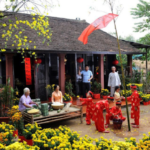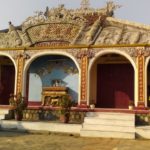Understanding the History and Process of a Lion Dance
During major festivals in Vietnam, such as Tet, Mid-Autumn Festival, weddings, and grand openings, it is common to see lion dance troupes being invited to perform. In recent years, the lion dance has gained popularity as a beloved folk art street performance, particularly among children.
The Lion Dance holds great significance as it incorporates the mythical figures of the lion, master, and dragon. These symbols represent qualities such as luck, happiness, and prosperity. Depending on the specific festival and its intended atmosphere, the lion dance troupe will perform dances that align with the festival’s meaning. This can involve separate performances of lion dance, or the combination of lion dance with master or dragon performances.
Ong Dia is a significant character frequently seen alongside the lion dance troupe, symbolizing the harmonious relationship between humans and animals. The captivating performance of the lion dance troupe is further enhanced by the rhythmic drumbeat, which adds an element of spectacle.
The History Behind the Lion Dance Tradition
The art of Lion dance originated in China over a millennium ago, intertwined with cherished folk tales that have been perpetuated through the ages. Across different regions, these folklore narratives have taken on distinct flavors, reflecting the unique cultural backgrounds and beliefs of each area.
Lion Dance: The Lion Dance is a traditional Chinese dance that is performed during special events and celebrations. It is often associated with the Chinese New Year and believed to bring good luck and fortune. The dance involves performers dressed in lion costumes who mimic the movements and characteristics of a lion. The Lion Dance is highly skilled and requires agility, strength, and coordination.
Master Dance: The Master Dance is a performance art form that showcases the skills and expertise of dancers who have attained a high level of mastery. These dancers have dedicated countless hours to perfecting their craft and have reached the pinnacle of their abilities. The Master Dance can encompass a wide range of styles and techniques, from classical ballet to contemporary dance. It is a mesmerizing display of talent, precision, and artistic expression.
The lion dance, a time-honored performance, has its origins in a mystical legend from southern China. According to the tale, long ago, in a coastal village, the inhabitants faced countless troubles caused by a formidable creature named Ky Lan – a fearsome monster with menacing eyes and a massive head.
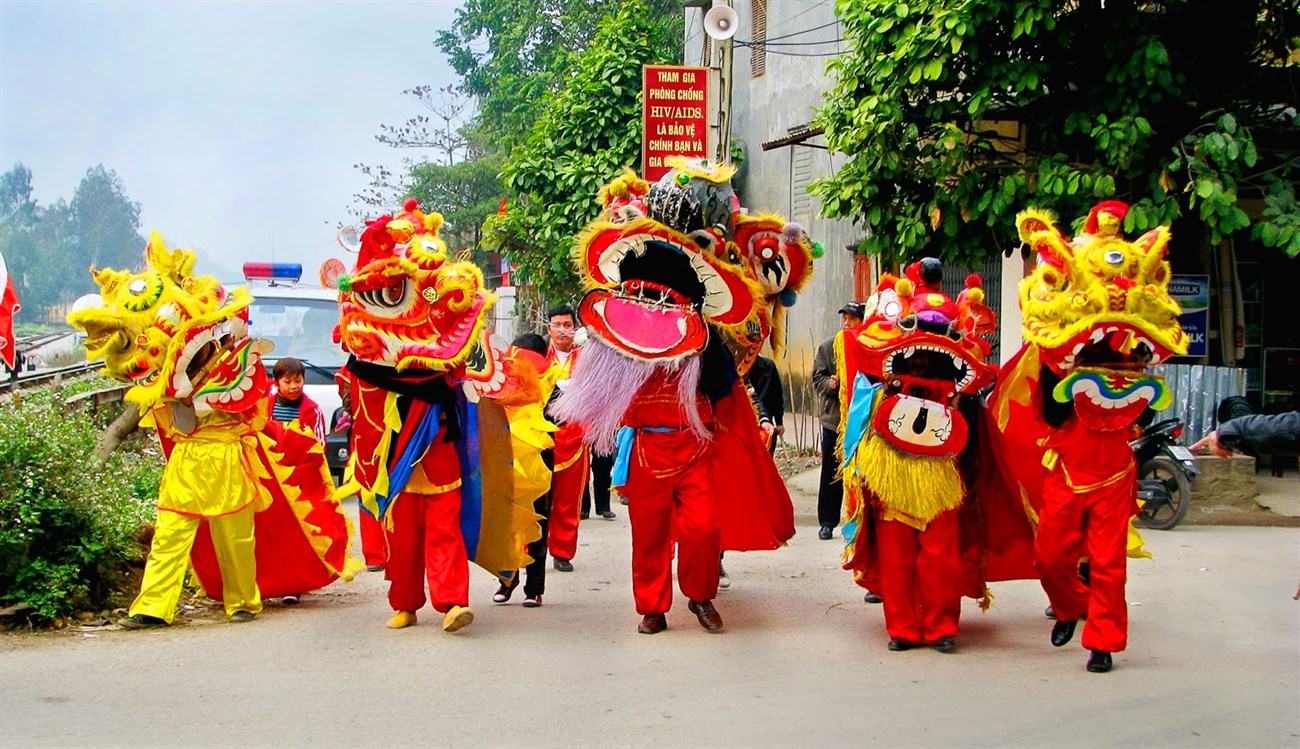
On important festivals, citizens often organize dragon dances as a means of seeking happiness, prosperity, and favorable weather conditions. Our country is known for a rich variety of dragon-related folk art forms, including dragon processions and dragon boat racing.
Exploring the Meaning Behind the Lion Dance at Chinese New Year
The lion dance tradition holds varying significance across different regions, with the most profound meaning being the expression of hopes for peace, happiness, luck, and prosperity. As a result, the lion dance is commonly performed during traditional festivals and significant holidays throughout the year.

The image of Ong Dia, constantly waving a fan with a smile, next to the lion dance troupe is rooted in the legend of Ong Dia’s success in taming the monster. Each year during the Lunar New Year, Ong Dia joins the lion to deliver blessings to all. This serves as a powerful symbol of the transformative power of converting evil into good, as well as the profound connection between humans and animals.
The Importance of the Lion Population Doing Displays
Did you know that the number of lions performing in each performance also carries its own significance?
- The act of two lions dancing harmoniously together is commonly referred to as “double happiness.”
- There are four lions symbolizing four blessings.
- The representation of the five elements is embodied by the significance of five lions.
- The concept of seven lions symbolically representing the vibrant spectrum of the rainbow is beautifully captured in this piece.
- Nine lions are a symbolic representation of sanctity and beauty.
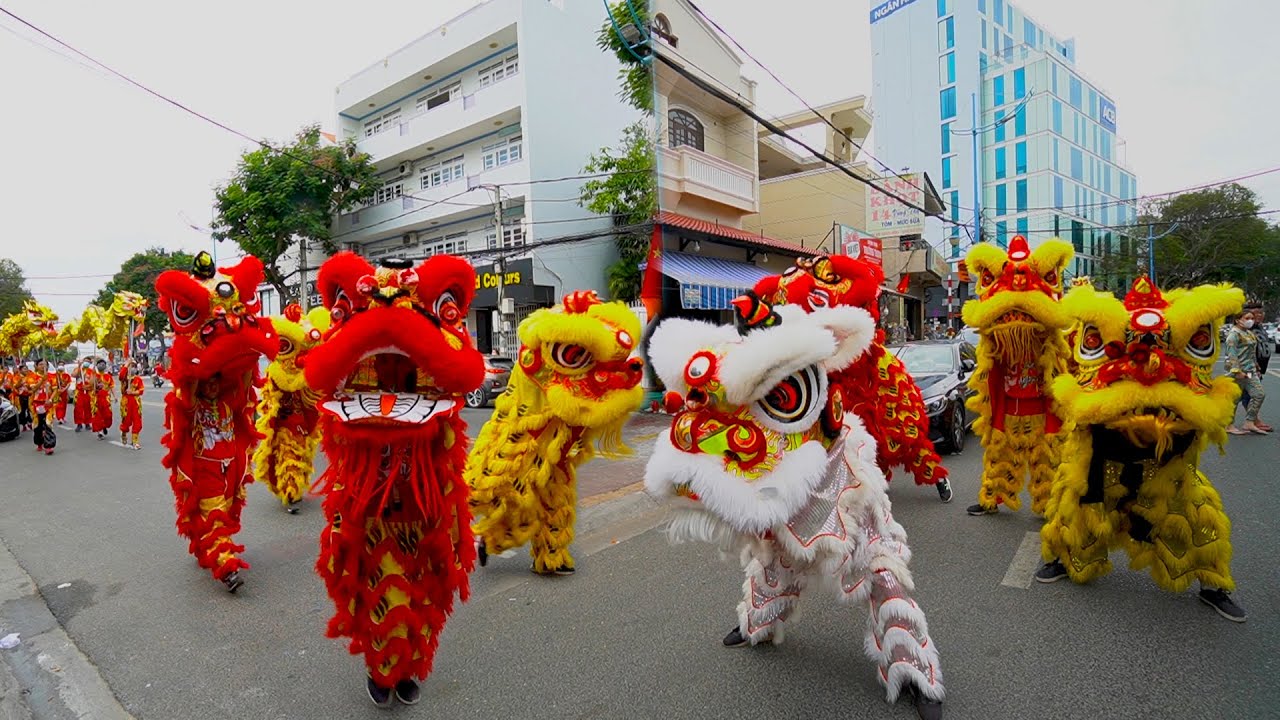
Exploring the Global Tradition of Lion Dancing
Vietnam Lion Dance Brings Good Fortune and Fun
The lion dance in Vietnam showcases remarkable similarities with the southern region of China, while also possessing distinctive elements including diverse lion designs and captivating dance movements. Notably, the lion dance performances of ethnic minorities bring a unique charm. Complementing these mesmerizing displays, Ong Dia, an iconic character with a friendly visage and a robust belly, stands alongside the lion dance troupes, enriching the tradition in our country. These captivating lion dance performances are typically graced during traditional festivities such as the Lunar New Year, weddings, birthdays, and notably, the enchanting Mid-Autumn Festival.
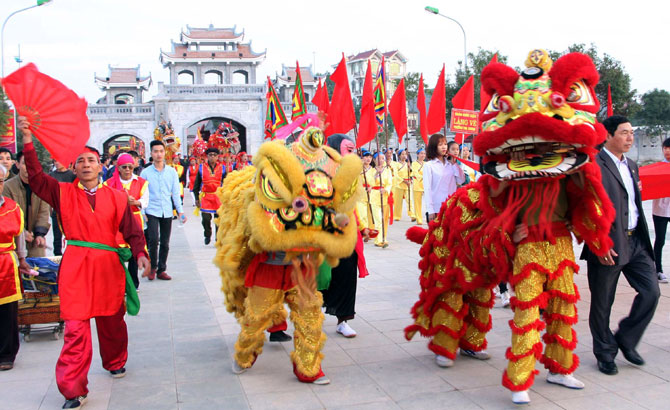
Celebrating Lunar New Year with a Lion Dance in China
The lion dance tradition originated in China and is accompanied by various legends surrounding its inception. This vibrant street art form showcases variations in lion appearance and dance styles across different regions of China.
The lion dance is a traditional performance commonly seen in the northern region. It typically involves a pair of male and female lions adorned with vibrant red and green ribbons respectively. This striking display showcases the energetic and lively dance moves characteristic of the northern region. On the other hand, in the southern region, lions are distinguished by their elaborate horns, crafted from a variety of materials. While both versions of the lion dance hold cultural significance, the ones performed in the north tend to exude a more exuberant and dynamic atmosphere.
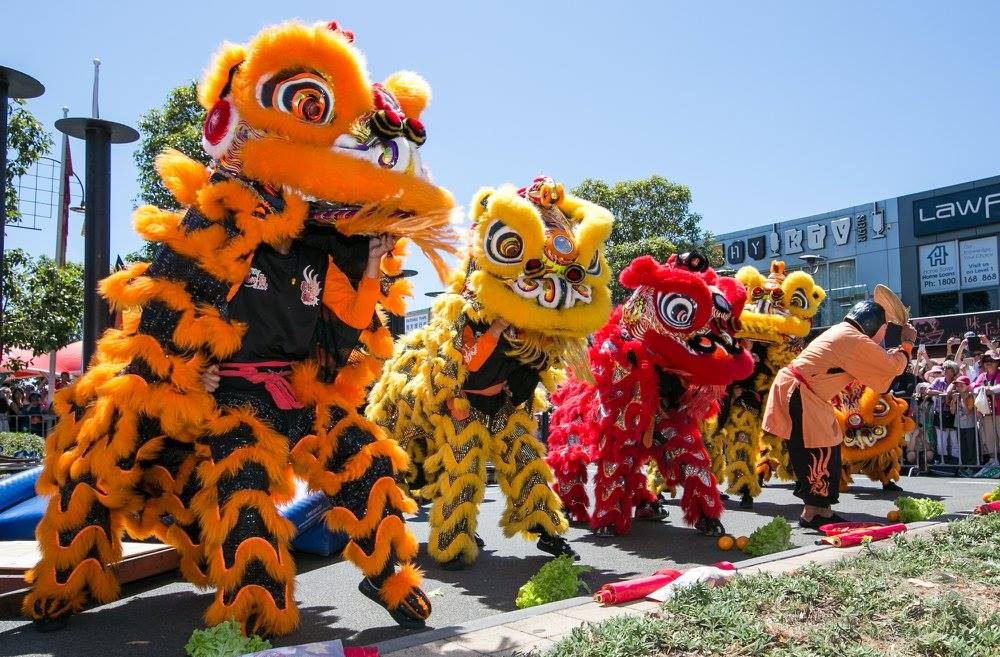
Chinese Tourists Flock to See Lion Dance in Japan
Japan, renowned for its rich cultural heritage, embraces a longstanding tradition of lion dance which encompasses a plethora of dance styles and diverse lion designs. In the enchanted realm of the Land of the Rising Sun, this captivating artform takes center stage during the commencement of the new year, serving as a potent harbinger of fortune and the expulsion of misfortune. With an array of distinctive variations, Japan’s lion dance undoubtedly showcases an unrivaled diversity, endowing it with an unparalleled sense of individuality within the realm of folk art.
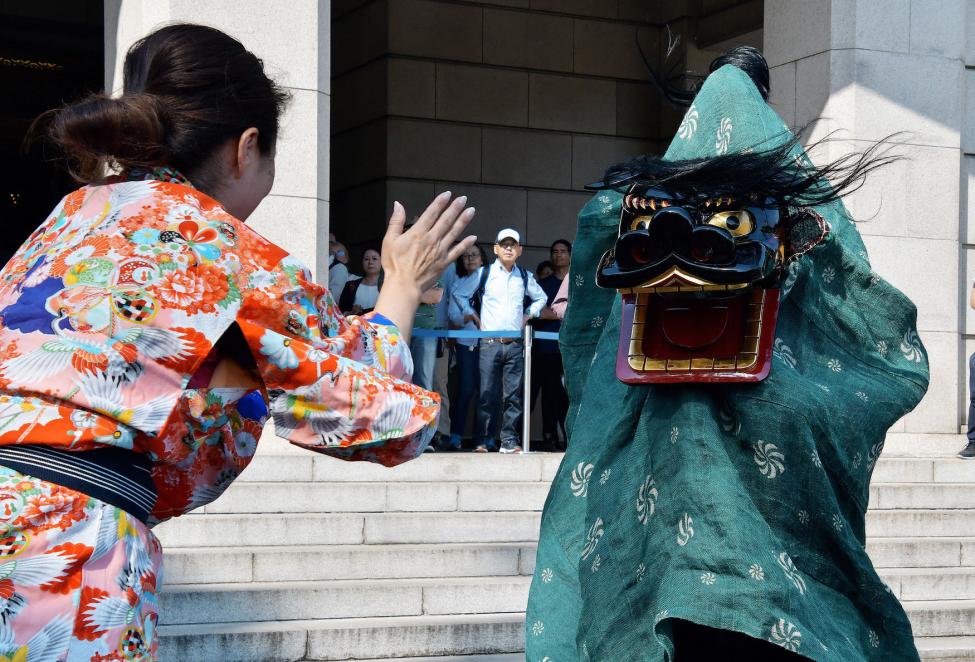
Experience the Colorful Lion Dance of Tibet
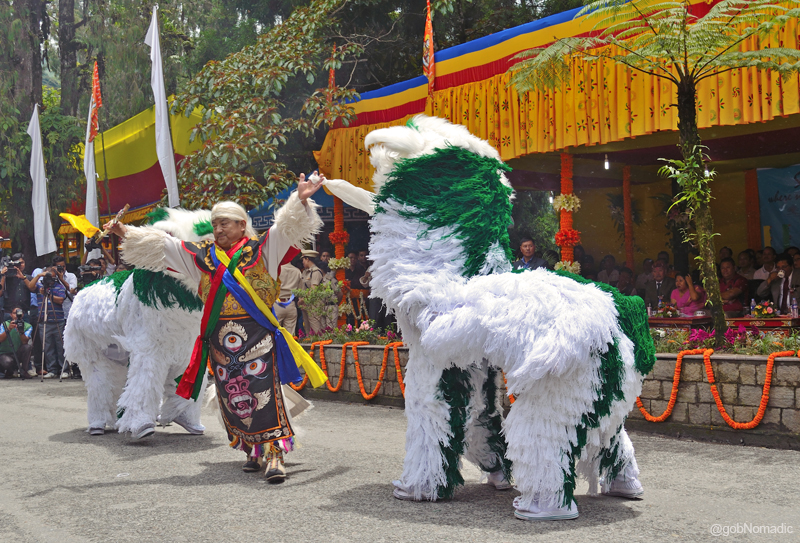
Popularity of Lion Dance Growing in Korea
The tradition of lion dance in Korea boasts a rich history comprising various adaptations. Regarded as a powerful ceremonial practice to repel malevolent forces, this enchanting performance takes center stage at the dawn of each new year, banishing demons and beckoning good fortune. What sets Korean lion dance apart is the belief that children who sit upon the lion’s back during the spectacle are blessed with lasting health and longevity.

This section provides a fundamental overview of the origins and significance of the age-old lion dance tradition.
If you have any further inquiries, don’t hesitate to leave a comment below. We are here to assist you!
Explore 12 Amazing Destinations for Biking Trips
Unlock Vietnam in a brand new way with an exciting biking tour! Discover the stunning beauty of the country with Dien May XANH’s top 12 must-see destinations. From sweeping plains to clear blue beaches and mountainous vistas – experience all the sights with your own personal cycling tour. Find your ideal route and set out for an adventure today!


























